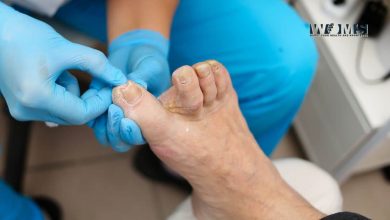Revolutionizing Healthcare Education: The Future of Online Learning

Key Takeaways
- Understand the advantages of online learning in shaping future healthcare professionals.
- Explore how technology influences healthcare education and practices.
- Discover challenges and solutions in virtual healthcare training programs.
- Examine the role of accredited online courses in fulfilling industry demands.
The Growing Demand for Online Healthcare Education
The landscape of education is rapidly evolving, with more institutions offering online programs to meet the increasing demand for accessible healthcare training. The flexibility and effectiveness of these programs become more pronounced as technological advancements continue to pave the way for innovative educational strategies. For many aspiring healthcare professionals, traditional education paths are no longer feasible due to geographical limitations, family responsibilities, or work commitments. Hence, a significant number are seeking options like online nursing schools in Texas, which allow them to earn reputable credentials at their own pace.
Online nursing schools in Texas, like Lamar University, offer flexible programs for students pursuing degrees in nursing, allowing them to balance education with work or personal commitments. Many of these programs are approved by institutions like the Commission on Collegiate Nursing Education (CCNE), and they vary from associate’s degrees to bachelor’s (BSN) and master’s (MSN) degrees. With a growing demand for healthcare professionals, online nursing programs in Texas provide students with the skills and clinical experience needed to succeed in a rapidly evolving healthcare landscape.
This shift enhances opportunities by opening the doors to career advancement for individuals who might otherwise be unable to participate in conventional education settings. Online learning platforms facilitate this by providing a flexible yet comprehensive curriculum, allowing students to study, gain necessary skills, and ultimately contribute to the healthcare industry in meaningful ways. With the rising acceptance of online degrees by employers and licensing boards, this mode of education is set to play a crucial role in shaping the future workforce.
Influence of Technology on Healthcare Learning
Innovations such as virtual reality (VR) and artificial intelligence (AI) have already begun revolutionizing healthcare education. These technologies create an entirely new dimension of learning, where students can engage in realistic, high-pressure simulations that replicate real-world clinical scenarios. Through immersive VR experiences, students develop critical thinking and decision-making skills in a safe but challenging environment, boosting their confidence and competency levels.
On the other hand, AI gives teachers the means to provide individualized instruction based on the speed and comprehension ability of each pupil. By analyzing student data, AI can identify areas of improvement and suggest resources accordingly, ensuring that students truly grasp complex concepts. This not only aids in academic performance but also prepares students for eventual real-life practice where they will need to apply their skills effectively. This synergy of AI and VR in the healthcare education landscape ensures a more dynamic and comprehensive approach to learning.
Challenges of Virtual Healthcare Training
Despite its many benefits, virtual healthcare training is not without challenges. Ensuring active student participation in a digital world where interactions are frequently indirect and asynchronous is one of the main concerns. Additionally, the tactile aspect of training, traditionally seen as crucial in healthcare education, can be less prevalent in online settings. However, these hurdles are being overcome with the development of innovative educational tools and pedagogical strategies.
Interactive platforms and virtual labs have emerged as pivotal resources for providing the hands-on practice necessary for quality training. These virtual labs simulate clinical environments, enabling students to perform procedures and make decisions as they would in real life. Furthermore, integrating elements like live webinars, group discussions, and peer review ensures that students remain engaged and develop vital communication skills. Such hybrid approaches are proving effective in bridging the experiential gap and enriching the learning experience.
The Importance of Accreditation in Online Courses
Accreditation in online healthcare courses is a critical element in ensuring educational quality and compliance with industry standards. It serves as a measure of quality assurance, confirming that the program satisfies strict ethical and intellectual requirements. Accreditation gives students the assurance that their education is comparable to traditional, in-person programs and the validation of their credentials by healthcare organizations.
Moreover, employers view accreditation as a mark of credibility, recognizing that graduates of accredited programs possess the competencies expected in today’s healthcare environments. For students, it helps secure career opportunities by adding weight to their educational credentials. Choosing accredited programs should be a top priority for students aiming to uphold their professional reputation and meet the licensing requirements necessary for their chosen fields.
The Future of Healthcare Education
As we anticipate the future of healthcare education, the convergence of technology and traditional educational methodologies is paramount. Integrating dynamic technologies, such as AI and VR, promises to support more tailored and effective learning experiences. Educational institutions must continue to evolve, adapting to both technological advancements and the changing needs of the healthcare sector.
The ultimate goal is to blend flexibility with quality, providing robust training that prepares healthcare professionals to address the complexities of modern patient care. Through innovation, collaboration, and continuous improvement, the future of healthcare education is poised to create a more competent and comprehensive workforce, ready to meet both current and future demands of the healthcare industry.




